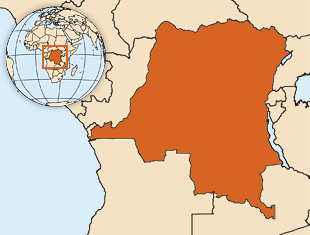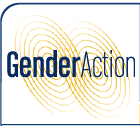 
PROGRAMS & THEMES: Gender, IFIs and Gender-Based Violence
 Case Study: Democratic Republic of Congo
Download the case study (pdf, 524kb) More than a decade of violent conflict in the Democratic Republic of the Congo (DRC) has led to devastating rates of gender-based violence (GBV). GBV has reached epidemic proportions in the DRC's mineral-rich eastern region, where militia groups use rape as a weapon to control the lucrative supply of coltan, tungsten, tin ore, tantalum, diamonds and gold (Pact, 2008; Megar, 2010; Mukenge, 2010; Vigaud-Walsh, 2011). In addition to numerous human rights and development organizations, the Extractive Industries Transparency Initiative (EITI)-a global system that uses voluntary global standards to monitor oil, gas and mining sector management-confirmed that GBV is widespread in the DRC's mining regions in 2010 (EITI International Secretariat, 2011). GBV, including rape, prostitution, forced marriage and domestic violence, is especially rampant in artisanal and small-scale mining (ASM) areas where women and children constitute up to 60 percent of miners, sorters, transporters and suppliers (Pact, 2008). Although ASM accounts for up to 90 percent of the DRC's mining exports, ASM remains unregulated, dangerous, and largely controlled by illegal traders and security personnel who perpetuate GBV (Pact, 2008). Pact, an organization funded in part by the International Finance Corporation, the World Bank's private sector arm, reports that female ASM laborers are easily exploited and marginalized; their average income ranges from just US$2-US$4 per day. Hazardous living conditions in ASM camps, including large concentrations of migrant men, high levels of alcohol and drug abuse and intense militia presence, increase women and girls' risk of GBV and sexually transmitted infections (Pact, 2008). International Financial Institutions (IFIs), including the World Bank (WB), have fueled the DRC's GBV epidemic through mining sector investments that disregard negative gender impacts. For example, the WB assisted the DRC to revise its Mining Code in 2002 in order to attract foreign private investment, but the new Code completely fails to address GBV that stems from mining activities (DRC Law No. 007/2002). In 2009, the WB loaned the DRC government US$255 million to rehabilitate a 700 km rail line in Eastern DRC in order to strengthen the mining industry and "encourage the development of isolated communities and help fight poverty" as part of a US$631 million mining infrastructure investment (Frost Illustrated, 2011). Although the WB project appraisal document acknowledges that "extreme violence and urgent humanitarian needs persist" in the targeted area (WB, 2010a), it completely ignores GBV (WB, 2010a; 2011).
|
